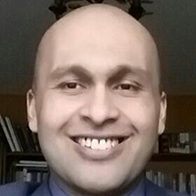 These “what are you first” questions keep arising in Malaysian political discourse.
These “what are you first” questions keep arising in Malaysian political discourse.
Our national saviour of the moment, Tan Sri Muhyiddin Yassin, famously said that he was a Malay first before he was a Malaysian.
The nation then dutifully gave its approval and disapproval without really deconstructing what that meant.
Such is the nature of politics. We dance to the tune of music of the Tok Dalang’s wayang kulit, to blatantly mix some metaphors.
Last Monday, an article appeared stating that, according to the Merdeka Institute, 60% of Malay respondents felt that they were Muslims first.
Some 26% felt they were Malaysians first and only 6% felt they were Malays first.
We are not told of the sample size nor of the demographics of the respondents. How many were male or female?
What percentage were urbanites or from rural areas (this is not insinuate that either group are prone to religiosity but just as a matter of fact).
What are the educational backgrounds of these respondents (sekolah agama respondents seem likely to be Muslims first rather than Malaysian or Malay first)?
And most importantly, how were the questions phrased? One can derive any questionnaire statistic by merely manipulating questions.
To me, the first thing we need to consider is why these three identity matrices – religious, national and ethic – should be made to compete in the first place.
In other words, why put being Muslim, Malaysian and Malay in a competing stance with one another?
Are these three identity matrices at odds with one another? I would argue that that is not necessarily the case.
One can easily harmonise them and achieve a equilibrium of identities.
There is no need to be anything first because each identity matrix fits in different slots of our overall identity.
What makes it a problem is when we confuse these identities. We allow them to exceed the limits given to them and thus enter into the spaces of the other identities.
It can happen in any way. Being a Malaysian can become overtly anti-religious.
The national identity of Soviet Russia was militantly anti-religious, owing to its fundamentalist communist identities.
Muslims and Christians in Soviet Russia were suppressed and only emerged after the fall of Soviet Russia.
In the same way, ethnocentric parties like Umno can actually discriminate against their co-religionists. The Indian Muslim party, Kimma have been trying to Malay-ify themselves for this very purpose.
Even though they are Muslim, they are not the right race to enjoy the benefits of Bumi-ism.
What these examples serve to show us is identity can also be politicised.
There is where racialism (focussing on the issues of a particular race ) becomes racism (saying a particular race is more preferred than others).
And this is what being Muslim first really is – the result of the politicisation of identity. It has very deep implications which may not be immediately obvious.
Let us consider the following thought process – does one need to be a Muslim in order to be neighbourly?
Absolutely not! Malaysia has (or at least used to have) a strong tradition of gotong-royong where the residents pitch in to clean up the neighbourhood.
Even Malay culture has “semangat kejiranan” (neighbourliness) without needing to recourse to the Islamic tradition.
Neighbourliness is a universal trait present in all cultures of the world. One does not need to be Muslim nor even a Malay or a Malaysian to be neighbourly.
I would suppose one only needs to be human but I’ve watched YouTube videos where even animals have shown such camaraderie.
So if universal traits are indeed universal, what does it mean to be Muslim first? I fear what it means is to be more conscious of one’s political identity as a Muslim.
Islam, more than any other religion, has a pronouncedly political identity. When a Muslim becomes politically conscious, he or she tends to seek allegiance with the Islamists.
Islamist, more often than not, seek to dominate and control. This is what I call Islamofascism which is a total system of oppression.
Declaring oneself as Muslim first may therefore indicate that the individual is more loyal to the global identity of political Islam.
What this means is, the individual feels greater ties of friendship to other Islamists than his own fellow members of the rakyat or co-ethnic.
A good but rather extreme example of this are the Malay-Muslims who left Malaysia to join Isis.
Their “Muslim first” identity compelled them to abandon their co-nationals and co-ethnics. A less malignant Muslim first identity would be that practised by PAS where they fete terrorist groups.
Even Umno which claims to be a nationalist group appeals to the Muslim identity to further its political agenda.
Datuk Seri Najib Razak’s words of high praise for Isis is proof of this. And this is why the Muslim first identity threatens the fabric of nation.
In truth, being a Muslim does not have to be so tribal.
If one reads the Quran, one would find that it seeks after the unity of mankind (Chapter 2 Verse 213).
Being a Muslim first on an ethical level isn’t the same as supremacising the Muslim tribe and culture. It is about being a good person who works for the welfare of all. – August 19, 2015.
* This is the personal opinion of the writer or publication and does not necessarily represent the views of The Malaysian Insider.


Comments
Please refrain from nicknames or comments of a racist, sexist, personal, vulgar or derogatory nature, or you may risk being blocked from commenting in our website. We encourage commenters to use their real names as their username. As comments are moderated, they may not appear immediately or even on the same day you posted them. We also reserve the right to delete off-topic comments